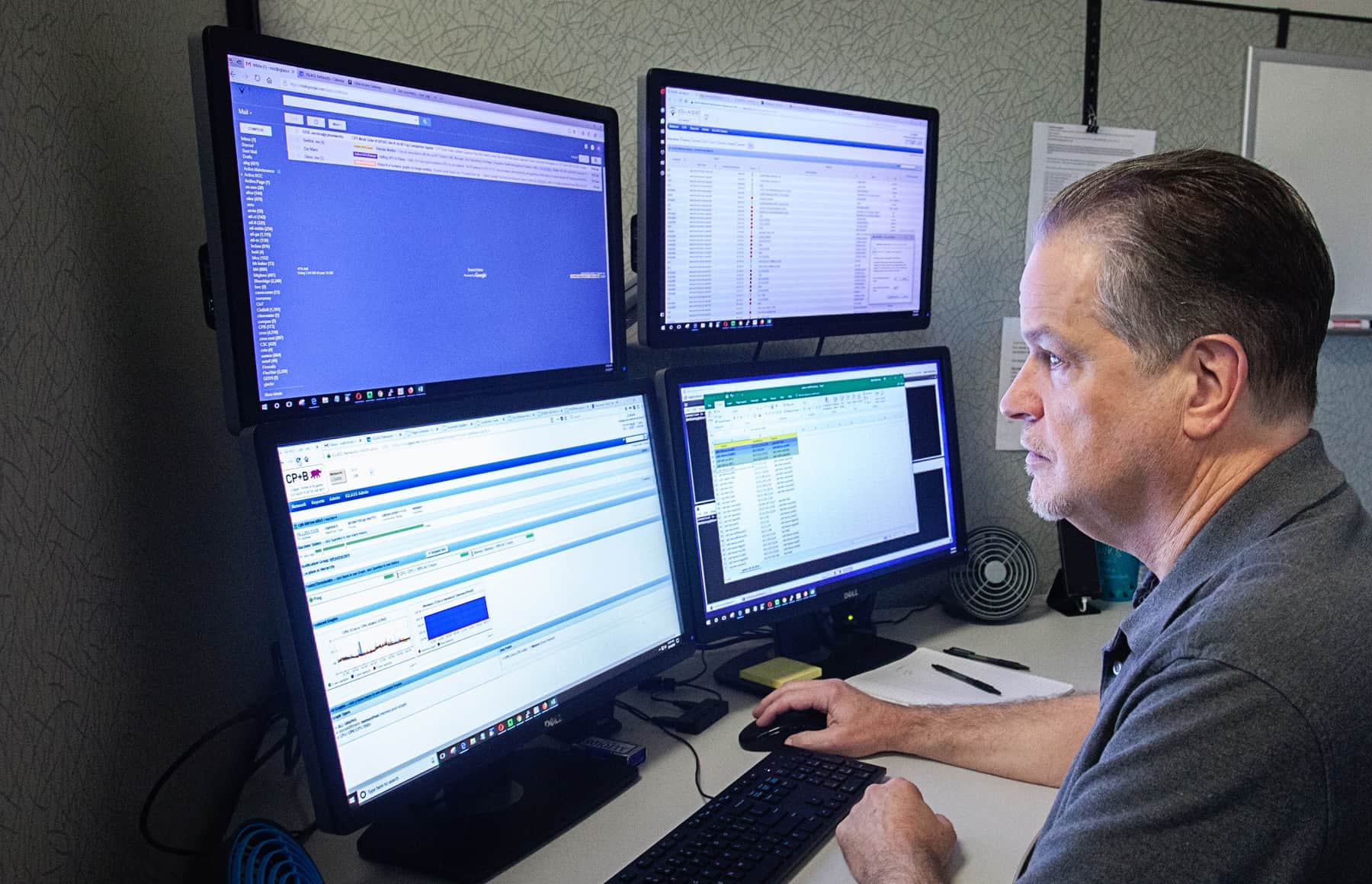NOC vs. SOC:
Comparing Outsourced Services
Success in today's ever-changing business landscape means having the necessary resources available to navigate issues both within and outside of your organization. It is paramount that companies ensure that they are not exposing the personal data that customers entrust to them to potential outside security incidents.
Protecting these assets requires taking a multi-layered approach to data security. Staying ahead of the ever-evolving techniques used by cyber hackers means ensuring that each vulnerable point which might end up being exploited is accounted for and protected.
Establishing an internal Network Operations Center (NOC) and Security Operations Center (SOC) to handle these challenges is one option. However, creating internal teams for these efforts is not always the best choice for your organization.
Outsourcing these services empowers your employees to focus on the functions of your core business, while simultaneously allowing experts in the space to use their network monitoring skills to handle any issues that may arise.
Protecting Network Infrastructure
Workers expect to have functional equipment and infrastructure to complete their tasks without corporate network and business disruptions. Any problems need to be resolved quickly to avoid impacting customers and harming the reputation of the company.
You may simply be wondering: What is the difference between a NOC and a SOC? The Network Operations Center's (NOC) main responsibility is to ensure that the organization's network infrastructure is capable of sustaining business operations, while the Security Operations Center's (SOC) main responsibility is to protect the organization against cyber security threats that have the potential to disrupt said business operations.
What is a Network Operations Center (NOC)?
A Network Operations Center (NOC) handles problems related to managing, monitoring, and controlling the networks within your infrastructure. That includes your networking assets, servers, virtual machines, and databases. These items keep data flowing to the applications used by your employees and customers.
When your network, website, servers, or applications go down, the NOC is responsible for identifying the source of the problem, and making everything functional again. The NOC is not only making sure your IT systems stay up and running, they're also optimizing network infrastructure.
A NOC monitors the health and availability of your:
- Networks
- Routers and Switches
- Servers
- Applications
- Websites
- Firewalls
- VPN Tunnels
- Wireless Access Points
- LANs/WANs/MANs
- Power and facility systems
Other functions of the NOC include:
- Network performance reporting and improvement recommendations
- Outage Response
- Capacity planning
- Alerting according to defined escalation procedures
- Ensuring coordination between disparate networks
Why Outsourcing your NOC Makes Sense
Having an outsourced NOC team in place to monitor and resolve problems before they present themselves to end users can be the best option to minimize downtime.
NOC’s usually have one central control room, which oversees any potential complications which can threaten the integrity of an organization's infrastructure, and alerts the organization about any interruptions when necessary.
As iGLASS details in their "Guide to Outsourced NOC Monitoring Services," there are many advantages to outsourcing NOC services.
These advantages include:
- Your network will experience far less downtime. The experts on station detect anomalies before they become crippling outages.
- When outages do occur, they are addressed immediately, and around the clock.
- Your operational costs in terms of people, time, and resources will be lower and predictable.
- Your IT support and network staff are freed to do more mission-critical support needed to meet your project, business efficiency, and growth goals.
- An experienced NOC team will minimize the nuisance alerts which distract your staff today.
- An outsourced NOC partner brings a fresh perspective. Your NOC partner has eyes on your infrastructure 24×7 with the expertise and experience to monitor your systems in ways you may not have considered.
What is a Security Operations Center (SOC)?
A Security Operations Center is the team within an organization that is responsible for detecting, preventing, investigating, and responding to any and all cyber threats. SOC teams perform 24/7/365 network monitoring for an organization, and address potential threats to sensitive data, corporate IT assets, computing systems, and other digital resources belonging to the organization.
If a cyberattack is detected, the SOC analysts are responsible for taking the necessary steps to remediate it. A SOC within an organization's building or facility is generally a central location from which staff can supervise the site using data processing technology.
The managing and enhancing of an organization's security posture can be divided into three silos: people, processes, and technology. Governance and compliance are vital to ensure all teams within the organization are doing their part to protect sensitive assets.
Responsibility of Security Operations Centers
With the constantly increasing threat of cyberattacks, a SOC (in some cases referred to as a Security Operation Center) is crucial to the success of an organization. They ensure the organization's ability to sustain operations, remain profitable, and achieve and maintain compliance with all regulations that apply in a given industry.
Though they are essential, achieving a high level of security maturity via an in-house SOC can be extremely expensive and time consuming.
For this reason, many organizations opt to use outsourced security services, such as SOC-as-a-Service offerings. These agreements are generally laid out in Service Level Agreements (SLA), which represents the commitment by the SOC to perform specific tasks - for example investigation and remediation of specific cases - within an accepted duration of time.
For more insights and assistance,
get in touch with our team.










